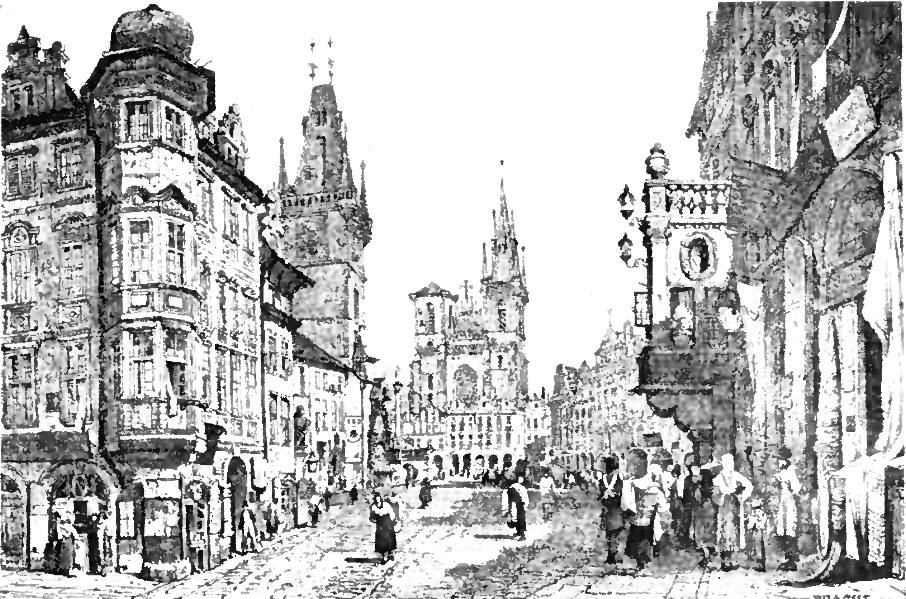<![CDATA[The 20th August 1968 revealed to the world the real nature of freedom in the Soviet Union. 200,000 troops from the Warsaw Pact states and 5,000 tanks entered Czechoslovakia to end the Prague Spring. This event bought home that more than a decade after Stalin’s death, democracy, independence and freedom of speech were still not options for the Soviet Satellite states. Soviet influence in Czechoslovakia had in fact started through democratic means. The Czechoslovak Communist Party won the 26th May 1946 Parliamentary elections with 31% of the vote, with a turnout from 93.9% of the electorate. In the aftermath of the Second World War, Czechoslovakia found itself in a precarious position. The threat of future German aggression still dominated Czechoslovak consciousness, and close ties with the Soviet Union seemed the best way to protect against this. The Communist Party was the only party with a close relationship with Russia, and this greatly enhanced its power and influence. By 1948 the landscape had changed dramatically. Czechoslovaks wanted to further the democratic tradition the country had before the Second World War, and it became clear that the increasingly unpopular Communist Party would not win the 1948 elections. To preserve the Communist state a Russian backed coup took place, effectively giving the Communist Party complete control over the government. The intervening twenty years saw the massive escalation of the Cold War, and increased suppression in the Soviet Satellite states, but by 1964 a process of liberalisation begun in Czechoslovakia. These initial modest reforms seemed to reignite the Czechoslovakian passion for democracy, and by 1966 students and intellectuals started to campaign for education reform and an end to censorship. In 1968 Alexander Dubcek was elected by the Czechoslovakian Central Committee, his election largely triggered by public support for his promised reform policies. In April of that year the new administration revealed its ‘Action Program’. This included democratic elections, freedom of speech and religion, the removal of travel restrictions, significant industrial and agricultural reform and greater autonomy for Slovakia. The reforms had an immediate impact. The removal of censorship saw a wave of new publications launched. Czechoslovak culture started to blossom, and the period saw writers and artists like Vaclav Havel produce unique and challenging works. Previously banned publications entered book stores and public discussion on issues such as freedom and democracy started. This cultural boom also saw investigations launched into the country’s history under communism, and the exposure and criticism of various historical cover-ups, purges and revisionism. Events in Czechoslovakia were a test for the Soviet Union post Stalin, and its reaction proved that the despotism of the ‘Terror’ era was still very much present. Leonid Brezhnev, the USSR’s leader, wanted Dubcek to halt his reforms. Greater Czech independence would weaken the Union as a whole, and freedom of the press had the potential to both dig up past atrocities and stir popular discord. Dubcek, carried on a wave of popular support, did not acquiesce. On the night of 20th August the country was invaded by the largest troop deployment in Europe since the Second World War. Armed resistance was inevitably limited, but protestors took to the streets. Journalists at Radio Prague refused to give up control of their radio station, resulting in twenty people being killed before the building was finally seized. More than a hundred street protestors were shot dead, and Dubcek and his allies were detained and taken to Moscow. By the 27th Dubcek returned to Prague and stated publicly that he would cancel his reforms. Communists begun to take on roles in his government as his reform supporting aides were gradually dismissed. By April 1969 he had been removed as secretary in response to another break out of anti-Soviet rioting. The crushing of the Spring saw mass emigration from Czechoslovakia, as business men and intellectuals fled the inevitable Soviet backlash. Although the actions of the Soviet Union were condemned internationally, there was no major intervention to halt it. Censorship returned, Czechoslovak culture was again repressed and the normalisation process began. The eventual fate of the Prague Spring revealed that even in the post Stalin era the Soviet Union was still ruled from Moscow. This is not just seen in the crushing of the reforms, but also by the fact Czechoslovakia was not just invaded by Russian soldiers, but men from across the Warsaw Pact conscripted to fight for the USSR. For Czechoslovaks though, it could also be seen as a source of some inspiration. The democratic fire and cultural identity of the country’s people still remained. When freedom eventually came at the dissolution of the Soviet Union, these would both be crucial for the future of both the Czech Republic and Slovakia.]]>
The Smothering of the Prague Spring
